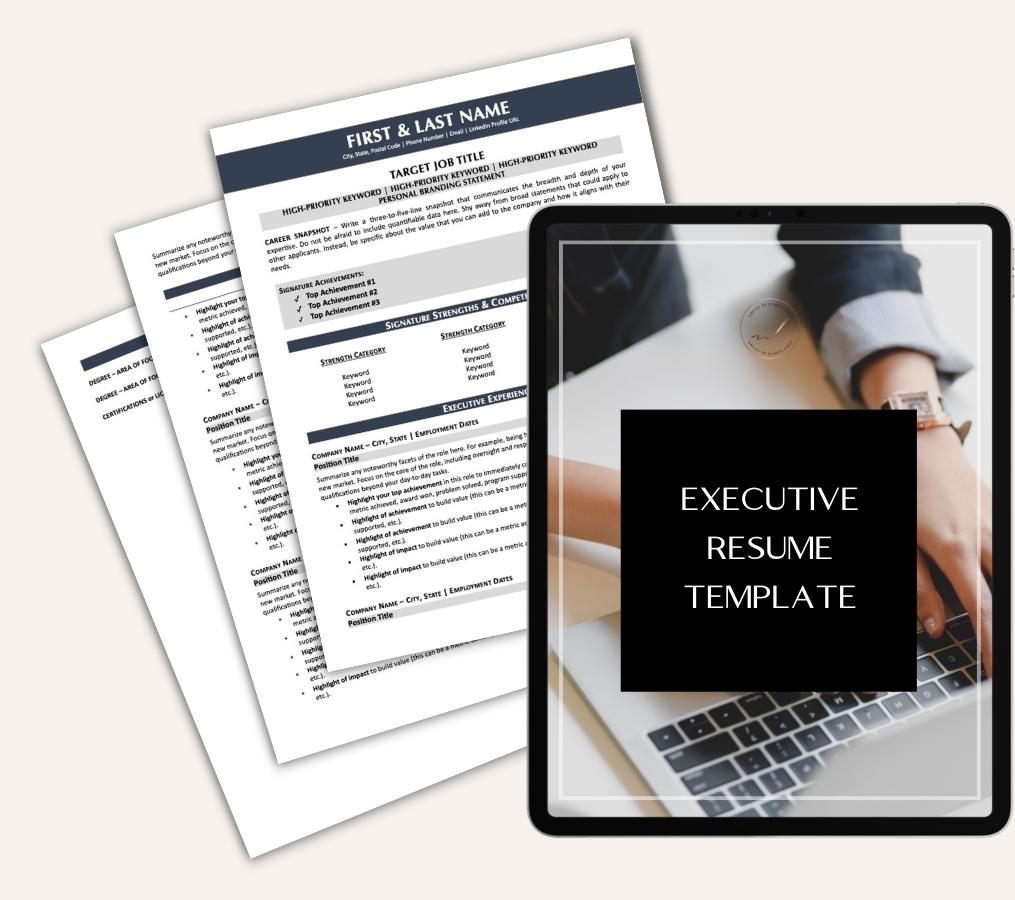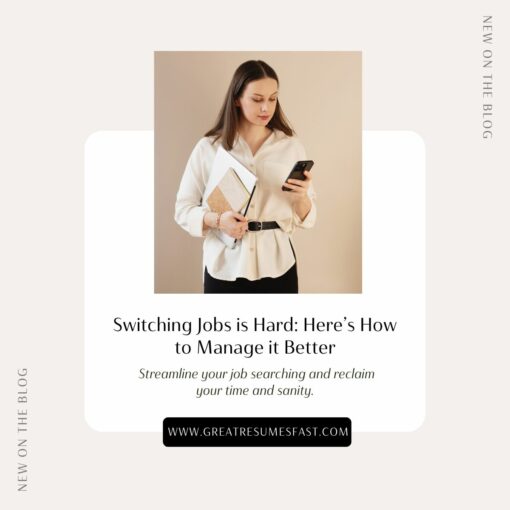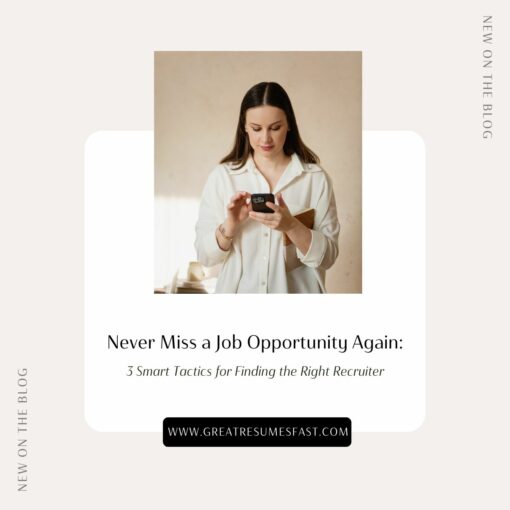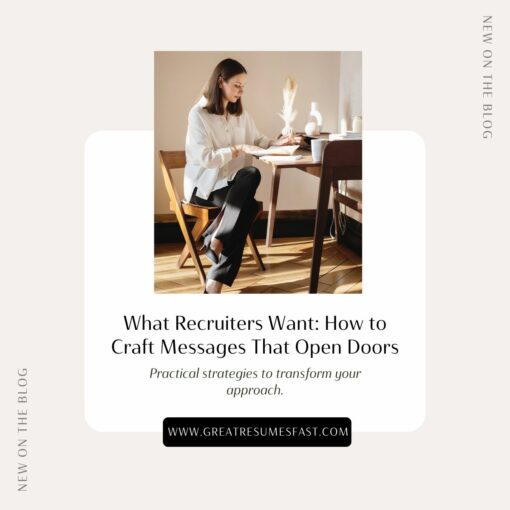Boost Your Job Search Results by Implementing These 5 Strategies
Welcome to The 2022 Year of Your Career Series. This is the fourth article in the series.
Did you know there are currently more openings per job seeker than there have been at any other time since the government started keeping track in 2000? Not only that, but job seeker confidence has hit a new high, too. Four-day workweeks are even getting more attention as employers are switching from a five-day to a four-day workweek to lure in new workers. All this to say, it’s a great time to make a career change if you were planning to go after your dream job in 2022 or get away from a toxic work culture.
In the previous three articles, I discussed questions to ask yourself and plans to put into place before you start your job search, along with five ways to jump-start your job search. In today’s article, I’m sharing five additional job search strategies you can implement into your job search routine to boost your results. You don’t just want to find a job, you want the right role, at the right company, for the right salary. These five strategies will help get you there.

Arrange Informational Meetings
Informational interviews are an important part of your job search. One benefit to informational interviews is that they help you find out more about the company, industry, and role that you’re interested in. You may think you already know enough, but they can give you insider insight you may not otherwise get. Secondly, they increase your exposure and visibility—especially within the hidden job market. An informational interview can lead straight to a job referral for a position that’s not public knowledge yet. Informational interviews also help keep your confidence up, especially if you’re unemployed. You’re able to dress professionally and meet in an office or professional work environment, and they can lead to encouraging conversations and new connections.
Prepare and practice
Just as you would prep for a job interview, you don’t want to walk into an informational interview unprepared. Informational interviews are great places to ask questions but don’t shoot for questions you can easily google. Instead, spend time studying industry terminology, know who the thought leaders and biggest industry experts are, and research the most important trends. This way you have some background information before going into the informational meeting.
I also suggest practicing with family and friends so that you’re comfortable and ready when you meet.
Let the expert do the talking
You want to gather as much information and advice as possible from your informational interview. Gathering info will be hard to do if you spend the entire 15-minute session giving the other person your whole life story. You’re there to learn, absorb information, and get advice. Keep your introduction short and to the point.
Give them a quick bit of your background, what you’re thinking of next, and then ask them for their feedback.
Here’s an example:
For the past ten years, I’ve owned a personal training company. I’m thinking of transitioning into the field of physical therapy and I’d like to learn more about the field and hear your feedback and advice on the transition.”
Your contacts can’t help you unless they know what you’re looking for, so give them a brief blurb about where you’re coming from and what direction you’re exploring next.
Get started on the right foot
Respect your contact’s time. If they’re someone you don’t know very well and this is your first time meeting, remind them how you know each other, or who referred you to them. Let them know you respect their time and appreciate them taking 15 minutes out of their busy schedule to chat.
Another goal of an informational interview is to be introduced to others in the industry and/or the role you’re targeting. Set the stage for asking for introductions to new connections at the beginning of the interview. Harvard Business Review shares, “It’s also a good idea to state at the outset that you’re interested in talking to 10 or 15 industry experts during your information-gathering phase. That way, the person will start to process the fact that you are looking for additional sources early on. If you wait until the end to ask for other referrals, she might be caught off guard.”
What to ask during the meeting
Informational meetings are designed to gather advice, information, and referrals so you want to ask about the person’s personal experience, career path, and advice for others considering the industry. Here are some good questions you can ask:
- How do you get into this line of work?
- What do you enjoy about it?
- What’s not so great about it?
- What’s changing in the sector?
- What kinds of people do well in this industry?
- What are the worst parts of your job?
- What didn’t you know before you got into this industry that you wish someone had told you?
Based on what I have shared about my background, what weaknesses do you see? And what would I need to do to lessen the concerns of a potential hiring manager?
With these few questions, you will gather plenty of information to help you in your research. Don’t forget to ask about other industry experts that you should speak to. If you can, get a referral to two to three new contacts that will help you in your research efforts and will help you expand your network.
Follow up after the meeting
Send a thank-you email the same or the next day after the meeting. But take time later to send a handwritten thank-you note—this will help you be remembered. Let them know how they helped you and if their help led to any specific results. For instance, an introduction that led to a job referral or interview.
Important reminder: do not ask for a job or a referral to a job. It’s unprofessional and can make the contact feel uncomfortable, especially if they don’t know you well and haven’t worked with you before. Instead, if an opening comes available at the person’s company, you can send them an email to let them know that you’re applying and ask them if there are any skills or experiences that you should hone in on in your cover letter. If they offer to provide a referral or contact, thank them but don’t directly ask for it.
Informational interviews are an important part of your overall job search strategy. They help you expand your connections, build relationships, and develop supporters. Keep in contact over the long term with anyone you have an informational interview with. Connect with them on LinkedIn, engage with their posts, send them a note with a link to an article you read that you think they might enjoy or that goes with the conversation you two had, or follow up to let them know that you read the book they recommended and what you enjoyed about it. These small engagements add up over time but they make the relationship win-win—you’re giving and not just taking. Relationships take time to build and the informational interview is just the beginning.
Reach Out to Recruiters
Recruiters are inundated with openings that need to be filled right now. I’ve heard many recruiters lament lately that they can’t hire fast enough. Reaching out to a recruiter can be mutually beneficial—you help them fill an opening, and you land a great new role. But, it’s important to know what type of recruiter you’re reaching out to, and you need to have a targeted approach. With as busy as recruiters are right now, not every inquiry will receive a response, there aren’t enough hours in the day for them to respond to everyone and do their job. So here’s how you can get their attention in a way that helps you both.
Understand how recruiters work and which type you’re reaching out to
There are three types of recruiters; internal, external, and executive.
Internal recruiters work for a specific company and hire for a specific area. For instance, an internal recruiter at Amazon might source specifically for finance roles or technology roles. It’s important to know the types of roles the recruiter is sourcing for because reaching out to a marketing recruiter for a healthcare role will not help you and will just be a waste of time.
External recruiters work outside the company and usually specialize in a specific industry. If you’re a CPA, you want to find an external recruiter who makes placements for accountants. If you’re in IT, look for a tech recruiter.
Then there are executive recruiters or executive search firms. They focus on executive searches and help companies find top-level VP and C-suite candidates. Sometimes these searches are handled confidentially and they’re not shared publicly, but I know of several executive search firms that specifically post their C-suite openings on Twitter and LinkedIn while also conducting a search for passive candidates. If you’re a C-suite executive, finding an executive search firm in your area could be a great way to conduct a confidential search.
Contacting a recruiter
I really like this stellar advice from HBR about approaching recruiters: “Never approach recruiters asking them to help you. They don’t know you and you aren’t paying them! Their job isn’t to help you; your job is to help them do their job and fill roles. Approach a recruiter only after you’ve done your research, your LinkedIn profile and resume are updated, you’re ready to interview, and you understand whether the recruiter is internal or external and what types of roles they recruit for.”
If you see a role online or on a job board and you can’t tell who the recruiter is, an easy way to find out is to head over to LinkedIn and conduct a search. You can input the company’s name and the title “recruiter” or “sourcer” and look through the profiles to find the recruiter who sources for the industry/area that you’re targeting.
Also, for positions posted on LinkedIn, some recruiters add their profile to the posting so you’ll be able to see who is hiring for the role and you can reach out to them directly.
Another option is to check out the “People” tab on a company’s LinkedIn company page. There you’ll be able to look through the people who work there to find those you’re already connected to, those who are second-degree connections, and hopefully the recruiter that you’re searching for.
When you do reach out to the recruiter, let them know that you’ve applied to or are interested in a specific role. I recommend adding the link to the opening. I’m not a fan of the overused language “My extensive experience in . . . makes me a valuable asset to . . .”
I see this in way too many messages and cover letters.
Instead, I would simply state what excited you about the role and how you can add value. Be specific and tangible. Give them an example of how you’ve delivered results in one of the required skills on the posting.
You could simply state:
Regarding your required qualifications, I offer:
- Experience + result #1
- Experience + result #2
- Experience + result #3
Then finish your email or message with a request to chat more over the phone.
Short, simple, and to the point is best, remember that recruiters are extremely busy.
Prepare for Your Interview
Expect that the first interview you have will likely be a virtual interview. There’s more to prep for when doing a remote interview. Make sure you test out the technology you’ll be using for the interview and that you have a professional-looking and quiet space to conduct the interview.
Do your research
It’s important to do as much research as possible about the company, the industry, and the person who will be interviewing you. Some companies make this really easy—they share most of this on their company website. Here are a few other suggestions for research:
- Google the company name then click on the “News” tab to read any recent articles the company was featured in.
- Google the industry, then click on “News” to see any current trends or challenges the industry as a whole is facing.
- Go to LinkedIn and visit the company’s LinkedIn page. There you’ll find information about the company and its culture. Look specifically for a tab on the company page titled “Life.” This tab will give you everything you want to know about the company culture, its people, trends, challenges, and posts from employees. You’ll find a wealth of information on this one page. Not every company has this tab. I’ve noticed in my research that it’s mostly larger companies right now that are using this feature: Google, Amazon, Microsoft, Facebook, LinkedIn, etc. But if the company has this info, you’ll find almost everything you need to know there and it will make the research process much simpler.
Review the job description in advance and decide on three or four stories and experiences that you want to highlight in the interview that aligns with the major requirements of the role. Practice them prior to the interview.
It’s also a good idea to practice the really common interview questions that you hear often.
- So tell me about yourself . . .
- What’s your greatest weakness?
Make sure that when answering the first question you keep it succinct and about your professional life, don’t dive into your personal life. We’re all tempted to go there when answering this question but that’s not what the interviewer is looking for when they ask.
With the second question, you often hear the advice to take a strength and turn it into a weakness. But it’s really OK to choose an area that you genuinely want to improve on and share it with the interviewer. Make sure to add how you’re working on improving in that area: reading a book, taking a course, etc.
Look for red flags
Interviews are two-sided. You’re not just there to nail the interview and snag an offer. You’re also there to make sure this is the right fit for you. How does the hiring manager treat you throughout the interview process? What has the company’s hiring process been like so far?
HRB recommends that instead of asking about the culture, you ask more specific questions that will give you insight into the organization’s culture. They recommend these questions:
- When someone drops the ball on a project, how does your team handle that?
- What specific efforts have been made to create an inclusive culture for underrepresented employees?
- When there is a conflict cross-functionally, how do folks resolve it?
- How does the company ensure there is a sense of community even when people are working remotely?
Gratitude and follow up
Make sure to send a thank-you email after the interview to every person you interviewed with and consider following it up with a handwritten thank-you note later. If you haven’t heard from the company within the timeframe that they gave you, wait a few days and then follow up with an email reiterating your excitement about the role.
Waiting can be the hardest part of the job search process so make sure that you’re not waiting in vain. Keep going with your job search. Don’t stop interviewing or searching while you wait to hear back on an interview. Keep networking, building relationships, scheduling informational meetings, reaching out to recruiters, applying to roles, and spending time with loved ones to keep your spirits lifted during your search.
Leverage All the Tools Available to You
Too often job seekers think of job searching as limited to applying to jobs online, using LinkedIn, and networking (very broadly). I mentioned in a previous article about using Meetup—that’s one tool that you can use to help your networking efforts, but there are many others. Here are just a few to help you:
LinkedIn’s suite of job search tools
LinkedIn’s Alumni Tool: Did you know that alumni are 3 times more likely to help you in your job search? If you’re reaching out cold to someone for an informational interview, try connecting with a fellow alumnus because it gives you a common point of connection.
LinkedIn’s Salary Tool: Discover your earning potential and what market averages are for your industry and role, and empower yourself to negotiate your salary when accepting an offer.
LinkedIn Skills Path: A new way to get hired on LinkedIn. You complete a Skills Path assessment for a skills-based role then your assessment is sent directly to a recruiter for an open role. You can then submit a video or complete a written response to interview questions the recruiter sends over to you.
LinkedIn Learning: LinkedIn offers many free learning videos to job seekers but you can also take courses on just about anything. The benefit to taking LinkedIn Learning courses is that once you finish the course you can add the certification to your profile and it’s validated directly on your profile so recruiters and companies can see it.
It also helps build SEO into your profile so that when recruiters search for someone with that particular skill your profile places higher up in search results as someone qualified for the job.
Free One Month of LinkedIn Premium for Job Seekers. You can get one month of LinkedIn Career Premium for free, which includes a month of LinkedIn Learning. What’s even more valuable are all the job insights that you get to see with each job posting.
You can see how many people have applied for the job, how qualified the competition is, how fit you are for the role, and lots of other great insider intel about the role. If you’re able to afford the upgrade (as of right now it’s about $325/year), it’s worth the upgraded access and insights you get into the roles, applications, companies, and competition. You also get more InMails so that you can reach out to people outside your immediate network.
These are my favorite job seeker tools. If you can’t tell, I’m a huge fan of all LinkedIn has to offer job seekers, but you can also use other job search tools like Glassdoor for employer research, JobScan for resume optimization, Job Search Journey for affordable job search resources, or Mailscoop.io for help finding email addresses for hiring managers.
Follow Up
Keeping in contact and checking in are probably the two most overlooked ways to boost your job search results. Yet, it’s persistence and staying top of mind that tend to produce the results we seek. There are so many different ways to follow up and many different reasons too.
Check in after the interview
Sending a thank-you email is a must after the interview, but if few people send a thank-you note, even fewer follow up a week or two later. If after the interview and sending a thank-you note you haven’t heard back and it’s been a week or two, go ahead and send a follow-up email expressing your continued excitement and interest in the role.
Send a note after you apply
With LinkedIn, it’s much easier to find the hiring manager than it used to be. After you’ve applied to a position online, send a note to the recruiter or hiring manager on LinkedIn. Introduce yourself, let them know you’ve applied to the role, why you’re excited about it, and what specifically you would bring to the role (don’t just say my experience makes me a great asset—tell them what specific experience or contribution is a fit).
Keep your network in the loop
If someone in your network has helped you or made a referral, be sure to follow up with them to let them know how things went. Share with them how the interview went or how the hiring process is going, let them know what became of the introduction they made, or mention something you did based on their recommendation.
Don’t let non-responses slow you down
Hiring managers, recruiters, and people, in general, are busy. Some are out with COVID, some are working around having their kids home because schools are closed, some are juggling 20 openings and 50-100 candidates and barely have time to eat a 10-minute quick lunch at their desk every day. If at first, you don’t hear anything back, don’t assume they’re ignoring you. Wait a few days to a week and send another message.
If you message a hiring manager to let them know that you applied and they don’t respond, send a polite follow-up one week later.
If you message a recruiter about a specific opening and they don’t message you back, wait a few days and check-in again.
If you send a networking email to your contacts and some don’t respond, it’s not a rejection. It’s probably life getting in the way. Politely and unassumingly check in a week later.
The key to following up is courtesy, kindness, and professionalism.
Adding these five strategies to the five I covered in last week’s article will increase the number of opportunities that become available to you, expand your network, and enable you to find that next perfect fit faster.
Thanks for reading! Want more job search and resume tips? Check out these 6 free resources on my website that have helped more than 25,000 job seekers land their next job.
You might also like the other articles in our 2022 The Year of Your Career Series:
- Ask These 5 Questions to Determine Your Next Career Move
- Complete These 5 Things Before You Start Your Job Search
- Jump-Start Your Job Search with These 5 Activities
#resumetips #jobseekers #jobsearch #careers
Share this post:

About the author
Jessica Hernandez, President, CEO & Founder of Great Resumes Fast
Hi, I’m Jessica. I started this company back in 2008 after more than a decade directing hiring practices at Fortune 500 companies.
What started as a side hustle (before that was even a word!) helping friends of friends with their resumes has now grown into a company that serves hundreds of happy clients a year. But the personal touch? I’ve kept that.
You might have seen me featured as a resume expert in publications like Forbes, Fast Company, and Fortune. And in 2020, I was honored to be named as a LinkedIn Top Voice of the year!
I’m so glad you’re here, and I can’t wait to help you find your next perfect-fit position!
Improve Your Resume: Download Your Free Executive Resume Template Today
Are you struggling to create an executive resume that will impress employers? Download this free executive resume template and receive a series of 10 emails with expert guidance on how to write resume content that resonates with employers so you get more interviews.
It's everything you need to stand out, make an impression, and accelerate your job search.








